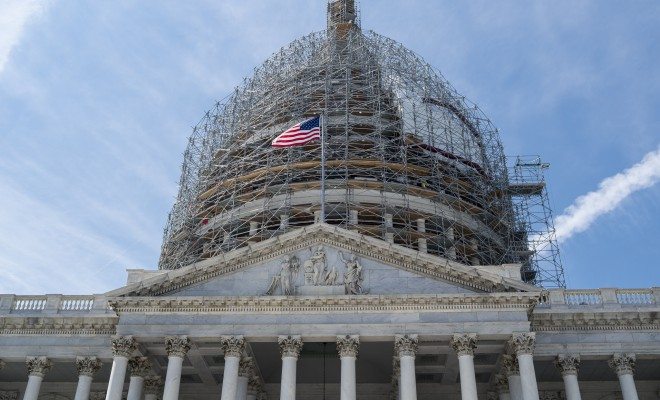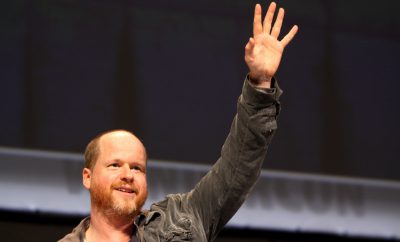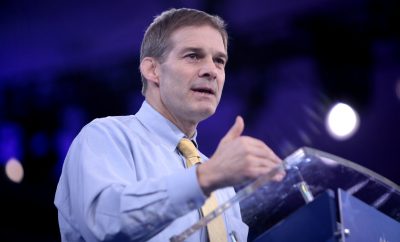 Image courtesy of [Phil Roeder via Flickr]
Image courtesy of [Phil Roeder via Flickr]
News
Republicans in Disarray After Kevin McCarthy Leaves Speaker Race
Representative Kevin McCarthy just abruptly announced that he will no longer be seeking the Speaker of the House position. McCarthy, the current House majority leader, was the clear frontrunner for outgoing Speaker John Boehner’s seat. The election for the speakership, which was scheduled for the end of the month, will now be postponed to a later date. McCarthy’s decision surprised nearly everyone, most notably the Republican leadership who was prepared to back him.
While it is currently unclear exactly why McCarthy decided to stop pursuing the speakership, several recent events may have shaped his decision. McCarthy recently faced a lot of scrutiny after his comments on the Select Committee on Benghazi implied that Republicans used their investigation into former Secretary of State Hillary Clinton for political gain. In an interview with Fox News, McCarthy said,
Everybody thought Hillary Clinton was unbeatable, right? But we put together a Benghazi special committee, a select committee. What are her numbers today? Her numbers are dropping. Why? Because she’s un-trustable. But no one would have known any of that had happened had we not fought and made that happen.
That comment was perceived by many to imply that the ongoing investigation into Clinton’s response to the 2012 terrorist attack in Benghazi, Libya has been used to damage the public’s perception of Clinton–and that those efforts were yielding results. McCarthy later said that his words were misunderstood and defended the integrity of the Benghazi Committee.
Despite these efforts, his original comments have already had important consequences. Hillary Clinton began using what he said in campaign ads and House Democrats initiated an all-out campaign to end the Benghazi Committee based on McCarthy’s gaffe.
But what is arguably the most significant factor at play is the emerging control that the conservative Freedom Caucus is exhibiting over the rest of the Republican Party. In recent years, there have been several signs of the emerging disagreement between the establishment wing of the Republican Party and the more conservative Tea Party wing, but the emerging leadership crisis is particularly significant. Past examples of this include recent budget fights–like the government shutdown over Obamacare in 2013–and the battle over the Department of Homeland Security’s funding, which was due to conservatives’ intense disagreement with the President’s executive action on immigration.
One of the reasons why John Boehner resigned from his position as Speaker was the challenge that the Tea Party created for him and the rest of the Party leadership. This was made clear when North Carolina Representative Mark Medows, filed a “motion to vacate the chair” in July, which in effect was an attempt to fire Boehner as speaker. Although the motion didn’t make it to the House floor–Boehner had to seek out Democratic support to prevent a vote–the message was clear. He eventually stepped down as means to help keep the Republicans together, but the factions within the party remain pronounced.
Although McCarthy was a pretty clear frontrunner for Speaker, he did have challengers. Representative Jason Chaffetz from Utah announced his intention to run for the speakership last week, and the Freedom Caucus recently endorsed Representative Daniel Webster from Florida. The Freedom Caucus, which has about 30 members, has enough influence to render the Speaker election particularly challenging. Once it comes to a vote, the incoming Speaker will need at least 218 votes to secure the position. There are currently 247 House Republicans, which means that if the caucus votes together, a candidate would need to get support from some Democrats to win the election.
While it is unlikely that McCarthy’s decision was because he didn’t think he would win the speakership, it does highlight the influence of Republican infighting on the Speaker election. Sources close to McCarthy told Vox,
It certainly wasn’t about getting the votes. That could’ve happened. However, he’s not going to be repeatedly attacked by 40 members of our conference. Nothing will ever be good enough for them, and Kevin doesn’t want to put his family through that and he doesn’t want to put the 200-plus other members through that.
Regardless of whether McCarthy thought he could win the election, he knew that without the explicit support of the Party’s conservative wing the speaker’s role would be extremely challenging. Republicans will now need to find a leader that can unite the establishment and conservative wings of the party, which will certainly be a tall order.








Comments